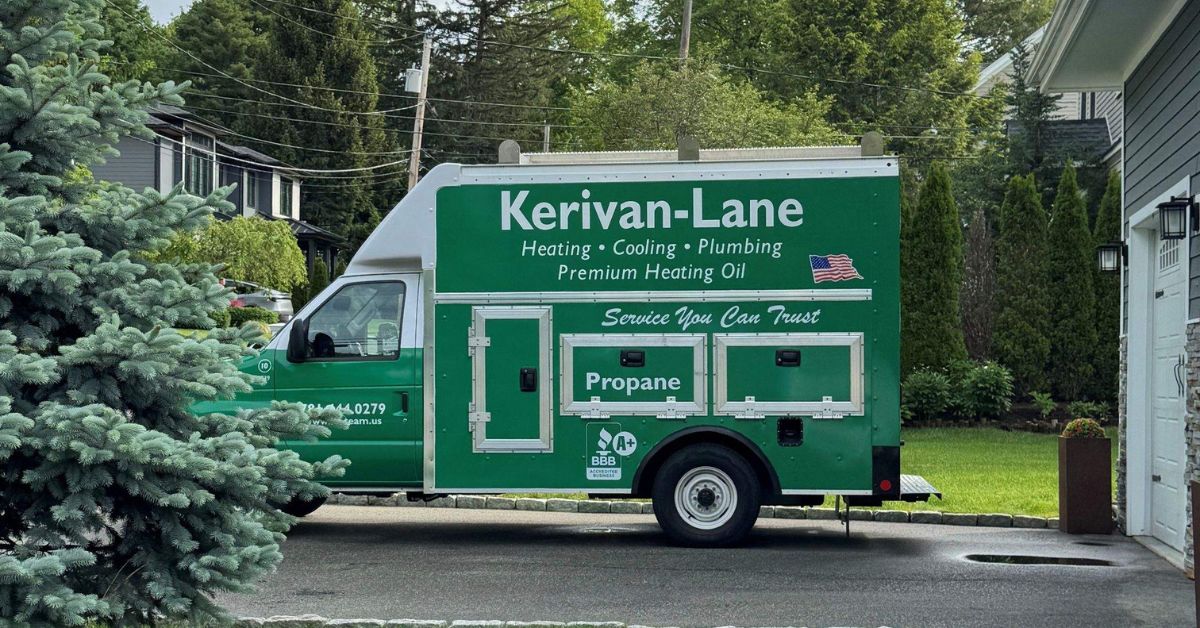
Winter in Massachusetts can be magical, with fresh snow, cozy nights, and holiday cheer, but it can also take a toll on your wallet when heating season kicks in. For homeowners in Lexington, MA, the cost of heating oil is one of the biggest winter expenses, and when temperatures drop, that cost can add up fast.
The good news? You have more control over your heating bill than you might think. Whether you’re exploring pre-buy plans, improving energy efficiency, or scheduling deliveries at the right time, there are plenty of ways to save on heating oil in Lexington, MA without sacrificing comfort.
At Kerivan-Lane, we’ve been helping Massachusetts homeowners heat their homes efficiently and affordably for decades. In this guide, we’ll share proven strategies to lower your heating costs, so you can enjoy winter without worrying about your next oil delivery.
Understanding Heating Oil Prices in Massachusetts
What Drives the Cost of Heating Oil?
Heating oil prices in Massachusetts aren’t set in stone, they can change dramatically throughout the year. Factors such as supply and demand, seasonal temperature patterns, and global oil market fluctuations all play a role. Prices often climb in the winter months when demand is highest, while global crude oil costs can push local prices up or down unexpectedly.
Average Heating Oil Prices in Lexington, MA
In Lexington and surrounding towns, heating oil prices can vary depending on the delivery method, provider, and type of payment plan. On-demand purchases are typically more expensive during peak season, while pre-buy contracts allow you to lock in a set price before winter begins. Budget plans spread your heating costs into predictable monthly payments, making it easier to manage expenses even during the coldest months.
Best Strategies to Lower Heating Oil Costs
Lock in Rates with Pre-Buy or Budget Plans
One of the simplest ways to save money is to lock in your heating oil rate before the coldest months arrive. Kerivan-Lane offers pre-buy plans and budget billing options that help protect you from unpredictable mid-winter price spikes. By committing to a rate early, you can better manage your seasonal budget and avoid the stress of fluctuating bills.
Schedule Heating Oil Deliveries Wisely
Ordering oil only when your tank is nearly empty can cost you more in the long run. Instead, schedule deliveries ahead of the winter rush or sign up for automatic delivery so you never risk running out. Planning ahead means you can take advantage of lower prices and avoid the premium rates that often hit during emergency deliveries.
Maintain Your Heating System for Efficiency
A well-maintained heating system burns fuel more efficiently, saving you money with every gallon. Annual tune-ups, cleanings, and inspections help ensure your boiler or furnace is operating at peak performance. Kerivan-Lane’s expert technicians can also identify potential issues before they become expensive repairs.
Improve Home Insulation and Sealing
Preventing heat from escaping your home is one of the best ways to lower your heating bill. Adding insulation to your attic, sealing drafty windows and doors, and insulating your basement can all help reduce the amount of oil your system needs to keep your home warm.
Quick Energy-Saving Tips for Winter
- Lower your thermostat by a few degrees at night or when you’re away.
- Install and program a smart thermostat for better temperature control.
- Close doors and vents to unused rooms.
- Open curtains during the day to let in sunlight.
- Reverse ceiling fan direction to push warm air down.
Even small habit changes can make a big difference in how much heating oil you use over the course of a season.
Long-Term Investments to Reduce Heating Oil Use
Upgrade to High-Efficiency Heating Equipment
If your boiler or furnace is more than 15 years old, upgrading to a high-efficiency model can dramatically cut your fuel consumption. Modern heating systems are designed to extract more heat from each gallon of oil, which means you’ll use less fuel to achieve the same comfort level.
Consider Supplemental Heating Options
In some cases, adding a pellet stove, mini-split heat pump, or electric fireplace can help reduce your reliance on oil. While these systems require an initial investment, they can offset heating expenses over time, especially during milder winter days.
Frequently Asked Questions
How can I find affordable heating oil near me in Lexington, MA?
You can start by comparing local providers early in the season, checking for pre-buy discounts or budget plans, and asking about automatic delivery options.
When is the best time to buy heating oil?
Late summer or early fall is often the most cost-effective time to purchase heating oil, before winter demand drives up prices.
How can I make my heating oil last longer?
Regular system maintenance, lowering thermostat settings, and improving home insulation are all effective strategies to stretch each delivery.
Is it worth switching to a high-efficiency furnace?
Yes. If your current system is outdated, the savings on fuel over time can outweigh the cost of upgrading.
Common Mistakes That Cost You More on Heating Oil
- Waiting until your tank is nearly empty before ordering.
- Skipping annual heating system maintenance.
- Ignoring drafts and poor insulation.
- Not exploring payment or delivery plan options.
By avoiding these mistakes, you can significantly reduce your seasonal heating expenses.
Stay Warm and Save with Kerivan-Lane
Lowering your heating oil costs in Lexington, MA is about more than just finding the cheapest fuel, it’s about making strategic decisions all year long. By locking in rates, planning deliveries, maintaining your heating system, and improving your home’s energy efficiency, you can enjoy a cozy winter without the financial strain.
Kerivan-Lane has been helping Massachusetts families heat their homes affordably for decades. With our reliable delivery, competitive pricing, and expert service, we’re the go-to choice for homeowners who value both comfort and savings.
Contact Kerivan-Lane today to secure your heating oil delivery and start saving before the next cold front arrives.

